
December 17
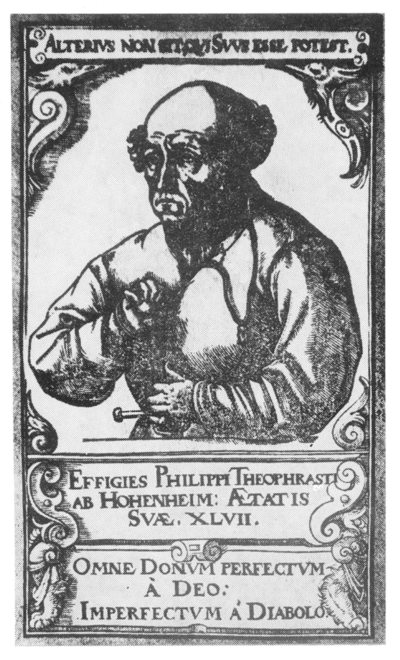
1493 Birth: Philippus A Paracelsus, Swiss physician, alchemist; Liber paramixum.
1526 Ferdinand of Austria is chosen as King of Bohemia.
1526 Pope Clemens VII publishes his decree 'Cum ad zero' and form an Inquisition.
1538 King Henry VIII, who had declared himself supreme head of the English church, is excommunicated by Pope Paul III.

1638 French and Swedish troops occupy Breisach on the Rhine.
1706 Birth: Gabrielle Châtelet (La belle Emilie), French writer.
1718 England declares war on Spain.




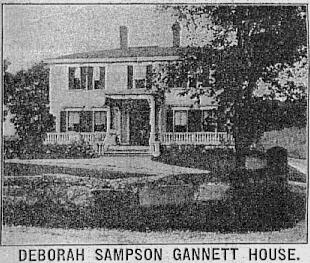
1777 US Revolutionary War: France recognises the independence of the English colonies in America.

1778 Birth: Sir Humphrey Davy; will discover several chemical elements and invent the miners safety lamp.
1788 The Russian army of Grigorij Potemkin occupies Ochárov.

1791 A traffic regulation in New York City establishes the first 'One Way', street.
1792 The first legislative assembly of Lower Canada opens in Quebec City.
1797 Birth: Joseph Henry, US scientist, inventor, pioneer of electromagnetism.
1798 The first impeachment trial against a US senator begins, against William Blount, Tennessee.
1819 The Congress of Angostura establishes Colombia's independence from Spain.
1821 Kentucky abolishes its debtors prisons.
1824 Birth: John Kerr, Scottish physicist; will discover magneto-optic effect: the Kerr-effect.
1830 Death: Simon Bolivar. Known as the "Liberator," he freed Colombia in 1819 and was elected its president. He then took Venezuela, Ecuador and Peru from the Spaniards. Upper Peru was renamed Bolivia. He died in Colombia.
1832 HMS Beagle with Charles Darwin aboard, sails into Strait Le Maire.
1835 Birth: Alexander E Agassiz, US businessman, biologist.
1842 Birth: Marius Sophus Lie, Norwegian mathematician; continous groups.
1843 Charles Dickens' A Christmas Carol is first published.
1849 William Coke purchases the first ever bowler hat from Thomas and William Bowler at Lock's of St. Jame's, England.
1852 The first Hawaiian cavalry is organised.
1862 US Civil War: General US Grant issues order #11 expelling Jews from Tennessee.
1875 Violent bread riots take place in Montréal.
1881 Death: Lewis H Morgan, US ethnologist; Iroquois.

1885 France declares Madagascar a protectorate.
1893 Russia ratifies the Dual Alliance with France.
1894 Birth: Hans 'Henry' Kramers, Dutch theoretical physicist; quantum mechanics.
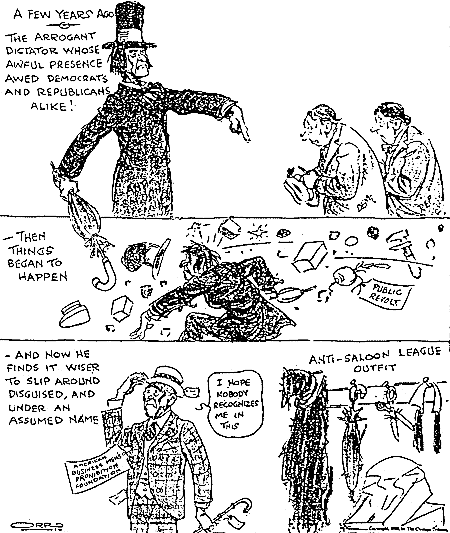
1895 George L. Brownell of Worcester, Massachusetts patents a paper-twine machine.

1900 The new Ellis Island Immigration station is completed at a cost of $1.5 million.
1902 Birth: Simon Drach, writer.
1903 Birth: Erskine P. Caldwell, author; Tobacco Road, God's Little Acre.
1903 At 10:35am, Wilbur and Orville Wright make the first successful flight in history of a self-propelled, heavier-than-air aircraft, the Wright Flyer, on the beach at Kitty Hawk, North Carolina. Orville pilots the gasoline-powered, propeller-driven biplane, which stays aloft for 12 seconds and covers 120 feet on its inaugural flight. They will make four flights, the longest lasting almost a minute. During the next few years, the Wright brothers will further develop their airplanes but keep a low profile about their successes in order to secure patents and contracts for their flying machines. By 1905, their aircraft can perform complex maneuvers and remain aloft for up to 39 minutes at a time. In 1908, they will travel to France and make their first public flights, arousing widespread public excitement. In 1909, the US Army's Signal Corps will purchase an especially constructed plane, and the brothers will found the Wright Company to build and market their aircraft.

1907 Ugyen Wangchuck becomes the first hereditary king of Bhutan.
1907 Death: Kelvin of Largs (William Thomson), British physicist (Kelvin), at 83.
1908 Birth: Willard Frank Libby, scientist, inventor, carbon-14 atomic clock, Nobel prize winner in 1960.
1909 Birth: Ferdinand H Aus der Fünten, German war criminal, (Breda 4).
1914 All Jews are expelled from Tel Aviv by the Turkish authorities.
1914 WW1: Austrian troops beat Russians in Limanova, Poland.
1914 WW1: Great Britain declares Egypt a protectorate, previously subject to Turkey, and begins moving troops there to defend the Suez Canal.
1917 Death: Elizabeth Garrett Anderson, the first English woman physician.
1917 Russian Revolution: Lazar Kaganovich sets out for Petrograd where he has been appointed a delegate to the All-Russian Congress of Soviets. (Wolf)
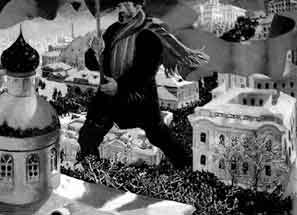
1919 The Austrian parliament approves the 8-hour day.
1920 The British Empire receives the League of Nations mandate to Nauru.
1920 Japan becomes the first non-white colonial power as she receives the League of Nations mandate over the Pacific islands.
1920 Weimar: All shares of the "Munchener Beobachter" are now in the hands of Anton Drexler. (Sebottendorff; Roots)
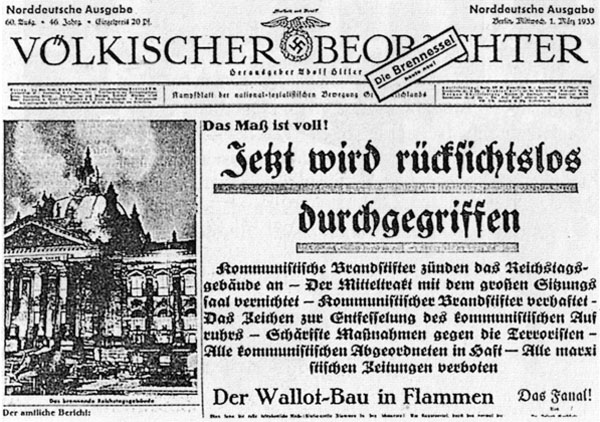
1920 South Africa receives the League of Nations mandate over SW Africa.
1922 The last British troops leave the Irish Free State.
1923 Greek king George II is overthrown by the army, which then institutes a republic.


1925 Russia and Turkey sign a nonaggression pact.
1926 Birth: Jeremy Brooks, writer.
1927 A US sub, the 'S-4,' sinks after a collision killing all 34 aboard.
1928 Birth: Marilyn Beck, newspaper columnist.
1929 Birth: William Safire, political columnist; New York Times journalist, author, Nixon speech writer.
1933 Death: Hans Vaihinger, German philosopher, at 81.
1934 Sir Oswald Mosley, leader of the British Union of Fascists, is tried for riotous assembly.
1939 WW2: The German battleship Admiral Graf Spee, having sunk nine Allied ships, is scuttled off Montevideo (Uraguay), after it is trapped by British warships. Its captain, Hans Langsdorff, will later commit suicide.
1940 WW2: British troops occupy Fort Capuzzo, Sollum and three other Italian positions on the Egypt-Libyan border. Italian survivors retreat to Bardia fortress.

1941 WW2: German troops led by Rommel begin retreating in North Africa.
1941 WW2: Dutch and Australian troops land on the Portuguese island of Timor.


1944 WW2: The US Army announces an end to the internment of Japanese-Americans during WW2. Japanese-Americans are released from detention camps and allowed back to the West Coast. More than 110,000 Japanese-Americans had been relocated from the West Coast shortly after the Japanese attack on Pearl Harbor. They will return to what is left of their homes less than three weeks later on 2 January.

1949 Burma recognises the People's Republic of China.
1951 Dutch Communist Party members are forbidden to be civil servants.
1954 The first fully automated railroad freight yard becomes operational in Gary, Indiana.

1961 A disgruntled employee sets fire to a Niteroi Circus of Rio de Janeiro circus tent in Niteroi, Brazil. 323 die as a result.
1961 India seizes Goa and two other Portuguese colonies.

1963 Tsjoi Doo Sun forms a government in South Korea.
1963 West and East Berlin sign an accord about travel rules.
1965 The British government proclaims an end to the oil-embargo against Rhodesia.
1967 The Clean Air Act is passed by the US Congress.

1967 Death: Harold Holt, Australian prime minister, drowned while swimming off Portsea, near Melbourne. His deputy, John McEwen, will succeede him.

1970 In Gdansk, Poland shipworkers go on strike.
1970 The USA performs a nuclear test at the Nevada Test Site.
1970 The USSR performs a nuclear test at Eastern Kazakhstan/Semipalitinsk USSR.
1971 The India-Pakistan War over East Pakistan (later Bangladesh) ends when 90,000 Pakistani troops surrender.
1972 A new line of control is agreed to in Kashmir between India and Pakistan.

1973 In Italy, 32 people are killed at Rome Airport when Arab terrorists throw bombs at a Pan Am jet and machine-gun passengers on board a Boeing 737 bound for Kuwait.
1975 A federal jury sentences Lynette Alice 'Squeaky' Fromme to life in prison for the attempted assassination of President Gerald R. Ford.
1977 France performs a nuclear test at Muruora Island.

1979 The Budweiser rocket car reaches a speed of 1190 kph; a record for a wheeled vehicle.
1980 Great Britain performs a nuclear test at the Nevada Test Site.
1980 Mauritania's provisional constitution is published.
1981 Members of Italy's Red Brigade kidnap American Brigadier-General James L. Dozier. He will be freed 42 days later in a raid by Italian anti-terrorist forces.
1985 Death: Otto Gotsche, writer.
1986 A federal jury in Detroit clears automaker John DeLorean of all 15 charges in his fraud and racketeering trial.
1986 A federal jury in Las Vegas rules on this date that NBC falsely linked entertainer Wayne Newton to organised crime in 1980 and 1981 telecasts. Newton is awarded $19.2 million in defamation damages, but a judge will later reduce the award to $5.3 million.
1986 Mrs Davina Thompson undergoes the first combined heart, lung and liver transplant, at Papworth Hospital in Cambridge, England.
1986 Iran-Contra: The US Congress forms the 'Irangate' committee.

1989 Brazil celebrates its first direct election for president in 29 years. Voters choose between Fernando Collor de Mello (who will win) and Luiz Inacio Lula da Silva.
1990 Desert Shield: US Secretary of State Baker tells NATO that Iraq might withdraw from Kuwait around the 15 January deadline. NATO rejects the partial solution.
1991 15 people are killed and 20 wounded in clashes between Soviet troops and guerrillas in a disputed Armenian enclave.
1991 Patrick Manning becomes the premier of Trinidad & Tobago.
1992 General Suwa finds the tooth of a 4.4 million year old Australopithecus ramidus.
1992 Israel attempts to deport hundreds of Palestinians to Lebanon but Beirut closes the border, trapping them in the Israeli-controlled security zone.
1992 NAFTA: President Bush formally signs the North American Free Trade Treaty simultaneously with the leaders of Mexico and Canada.
1993 President Clinton acknowledges the $500 million gift of philanthropist Walter Annenberg to public-education reform.
1993 Bangladesh moslems call for the murder of feminist Taslima Nasrin.
1994 Two US pilots are captured and interrogated by North Korea after their helicopter crash-lands in the Communist state.
1996 The UN General Assembly appointes Kofi Annan of Ghana to a five-year term as secretary-general, beginning 1 January 1997.
1996 Peruvian rebels storm the Japanese ambassador's home in Lima, threatening to kill almost 490 hostages unless the government frees jailed comrades.
1996 Death: Sun Yaoting, China's last imperial eunuch, in Beijing at the age of 93.
1997 New Jersey becomes the first state in the United States to permit homosexual couples to adopt children.
1997 Death: Reginald Victor Jones, scientist, at 86.
1998 The UN World Meteorological Organisation declares that 1998 is the warmest year ever recorded.
2001 As bitter rhetoric continues between India and Pakistan, U.S. Secretary of State Colin Powell says that the situation "has the potential of becoming very dangerous."
2001 After pounding the Tora Bora mountains for days, U.S. military officials say the trail has gone cold in the hunt for Osama bin Laden. Rear-Admiral John Stufflebeem says that it is "anybody's guess" on bin Laden's location. Stufflebeem, who is the deputy director of operations for the Joint Chiefs of Staff, adds, "A few days ago we believed he was in that (Tora Bora) area, and now we're not as sure."


2001

2001

2002

2003

2003

2004

2004

2004

2004

2004

2004

Visit:




 Visit:
Visit:

Click Here to email the History: One Day At a Time webmaster.